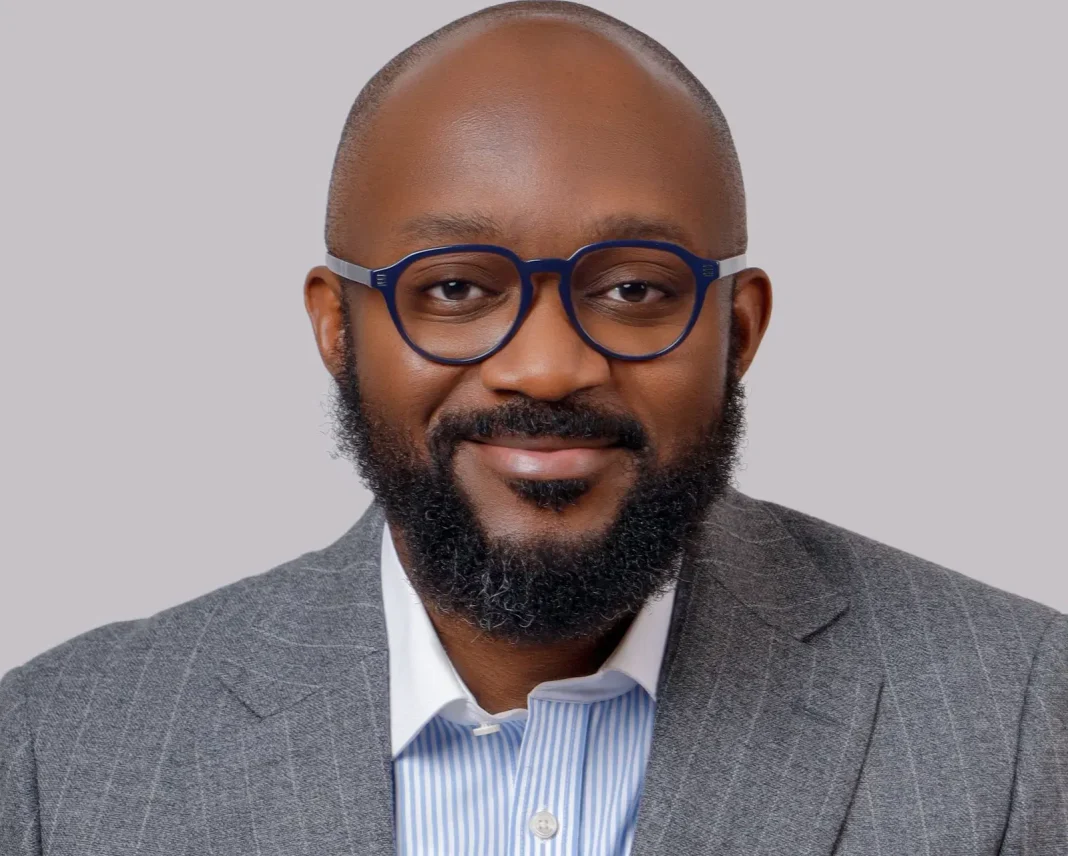is Yiaga Africa’s executive director. He discusses topics pertaining to the nationwide by-election that was held on Saturday in this interview. Among other things, he criticizes the part politicians play in elections, the need for the National Assembly and the Independent National Electoral Commission (INEC) to improve the electoral process, and the importance of the electorate in fostering democracy. Joy Anibogu provides the following excerpts:
How do you view the string of accusations and the fairness of Saturday’s by-election?
It is wonderful that this election has finally taken place. Although it isn’t finished yet, we are certain that it will be. because last year should have been the end of this by-election. It did not take place. I’m aware that the independent National Electoral Commission (INEC) was not given enough cash to hold the election, which contributed to its lengthy duration. And that in itself is problematic because depriving the electoral commission of the necessary cash is one method to capture INEC and prevent it from operating. Due to INEC’s lack of resources, the election is being held today. However, this election teaches us three things. First, our political elite continues to refuse to follow the fundamental principles of democracy and fair elections. Locations like Kano, where a large number of thugs were mobilized, are completely unacceptable in and of themselves. Thus, this is evident. Furthermore, I’m not sure how the general elections in 2027 will turn out.
Does this imply, however, that voters and the electorate are not understanding the fundamentals of democracy?
Not at all. Initially, there are a number of problems. Consider thuggery to be a form of socio-economic inequality. There is a notion that suggests that thuggery is fueled by the lack of opportunities and employment opportunities, which the state fails to provide. The other point is that when people believe that politicians just embezzle public cash and fail to deliver on their promises, they want to be used as tools by those same politicians to sabotage the process. in order to receive a portion of the cake. That is one of the problems that are causing this. However, I dare think that if you look elsewhere and have heard the Resident Electoral Commissioner (REC) speak before, there was an attempt to sabotage the process. It’s also visible if you look at Ogun State. First, I believe that today’s events are merely a prelude to what will occur in 2027.
I wanted to ask you if the two adjectives I used earlier—integrity and management—would be a good prelude to the 2027 elections.
Yes, definitely. for two reasons. One, I believe that when the security forces reprimanded those thugs in locations like Kano, they were very receptive. Arrests have also occurred in Kaduna and Kano. We also witnessed the arrest of a political party agent and two INEC officials. They were therefore quite receptive. However, this is a by-election. They will be overworked because the 2027 elections will be held throughout the entire nation. However, I want to give them the benefit of the doubt and praise the security services for their promptness during today’s by-election. However, the third section discusses the turnout level and the reasons behind absentee voting. It might be due to several circumstances. The first possibility is exhaustion. Second, they simply do not believe that their lives will be changed by their participation in this election. However, when individuals claim that their votes are meaningless, they don’t leave because doing so will allow the minority to rule over the majority. And in a democracy, it in and of itself is abnormal.
During elections, you must be there and make it harder for bad leaders to win. However, staying out won’t make this go away.
Do political parties and even non-governmental organizations like yours use public awareness to speed up this kind of campaigning?
Yes, we are contributing in some way. The media is also playing a role in civic society. But democracy, in my opinion, is a process. Persuasion, intellectual competition, and discussion and debate are all necessary for democracy. That is what civil society will continue to accomplish. We shall keep an eye out for any holes in our elections. We will determine those shortcomings and disclose them to the public. As civil society, we will not compromise on the norms for holding our institutions and elected officials accountable. We shall keep holding INEC to a higher standard. Democracy can only truly flourish in this way. Thus, I believe that civil society organizations are mostly fulfilling their job in spite of the difficulties they encounter. In the same manner, the media is carrying out its mandate. However, in a democracy, the people are ultimately the ones who make the laws. Also, if they don’t raise their voices and there are elections all throughout the state with little turnout, it’s another way to send a strong message to the political elite that winning an election doesn’t give you legitimacy.
After 26 years of democracy, the Bimodal Voter Accreditation System (BIVAS) and electronic voting appear to be an illusion. Additionally, results are released spontaneously from the wards to the local government headquarters and other locations in other countries, such as African nations. Why is it so hard to do in Nigeria?
I don’t think it’s a hard task. The mindset of the political elite, in my opinion, is what makes it challenging. The electoral process is being obstructed by them. To make the process more streamlined, the INEC Result Viewing Portal (IReV) and BIVAS were implemented. In addition to increasing voter accreditation efficiency, the BIVAS was implemented to restrict proxy and multiple voting. What’s that? Because in the past, politicians have gotten around elections by encouraging people to cast multiple or double ballots. In my opinion, the fact that these technologies are here to stay is crucial, but three factors need to be considered. First, IReV is not included in the collation procedure, according to the Supreme Court.
What must the National Assembly do?
Although I disagree with the Supreme Court, the National Assembly—particularly the Senate and the House of Representatives—should and is requiring electronic transmission. Thus, make both manual and electronic transmissions required by law and work hand in hand. The second is that it’s unclear how INEC’s rules, regulations, and guidelines are doing. On the one hand, the court asserts that the rules and regulations are a component of the law and that you must largely adhere to their provisions. However, it states that the regulations do not form part of the legal framework and that, as electronic transmission is not covered by the Act, it cannot be introduced through regulations. The third—and possibly final—point is that we require more transparency and that INEC expose the back end of the BIVAS and the back end of the IReV to independent audit and examination. By doing this, you can guarantee stakeholders and voters that there is no corruption or manipulation of the INEC BIVAS and IReV servers’ back ends. Because you can’t expect people to believe you if you organize elections in a way that is opaque. You must be transparent if you want people to believe the procedure and the result. People are stating that they need a new INEC because of this, and the next INEC should be able to do all of these things. The only way to increase the number of people who vote in elections and create leaders who will answer to the Nigerian people is if we fortify our democracy.
Yes, but you can’t stop Nigerian politics from using money. In any political context, money is a crucial component. Consider how much money was spent on the US presidential election—it was enormous—but in this case, money is being used as an inducement. How beneficial is that for our culture of democracy?
Despite the fact that I heard in your first article that one of the parties said the funds were intended for logistics. Just consider that there are roughly 25 million people on election day. You have one person or possibly a political organization with that enormous sum of money at a time when Nigerians can’t even boast of one meal a day. Although it’s unclear if it’s for logistics or vote buying, it does indicate how costly it is. For example, if a constituency has 200 polling places, a political party or candidate must send party agents to those polling places. The party agents must be paid by you. Despite the logistical challenges, it is impossible to have one person with that much money on voting day without raising suspicions. Therefore, these are the essential questions we must pose. How come you have more than N25 million to give to your party agents on election day? Other distribution methods exist. You can make transfers. Additionally, those ought to have been completed sooner. Yes, a full investigation by the security services is required. However, you need to prove two things if it is proven that this is for vote buying, as you are aware that it is illegal. “Actus reus and mens rea” is a legal term. All of that will be relevant, including the act, the intention, and the standard of proof. However, it’s encouraging to see that security forces have detained wealthy people in Ogun or Oyo States in addition to Kaduna State. It demonstrates our progress.
However, it appears that there has been little movement in establishing an electoral tribunal to oversee matters such as these election-related frauds. Would it contribute to the strengthening of Nigeria’s democratic culture?
There are others who think that because INEC is responsible for prosecution under the election legislation, we have not been able to punish electoral offenses.
The main problem, however, is whether bribery is illegal under the criminal and penal codes. Many of the infractions that we classify as electoral offences are already crimes that have been established in our criminal jurisprudence if you disturb the peace. Because INEC claims that its current tasks are stifling it, why must we burden it with the ongoing prosecution of election offenders? An electoral offenses commission is therefore desperately needed. I wholeheartedly endorse that. However, a number of precautions must be taken. First, that the Attorney General of the Federation shouldn’t have any authority over the commission’s day-to-day operations. Regarding electoral offenses, the constitutional authority granted to the Attorney General of the Federation to initiate internal prosecutions and to halt criminal cases must be eliminated. Therefore, protecting the prosecution of electoral offenders requires more than just creating an electoral crimes commission; further necessary steps must be implemented. However, there is a general lack of accountability if electoral criminals are not prosecuted. The main question is that, as one of the lawmakers pointed out to me a few weeks ago, we are the ones who commit these electoral offenses. By this, we mean the political elite, who are also the ones who are expected to enact laws. Do you honestly believe they will enact laws that contradict themselves? No, that isn’t feasible. These, then, are the concerns.



